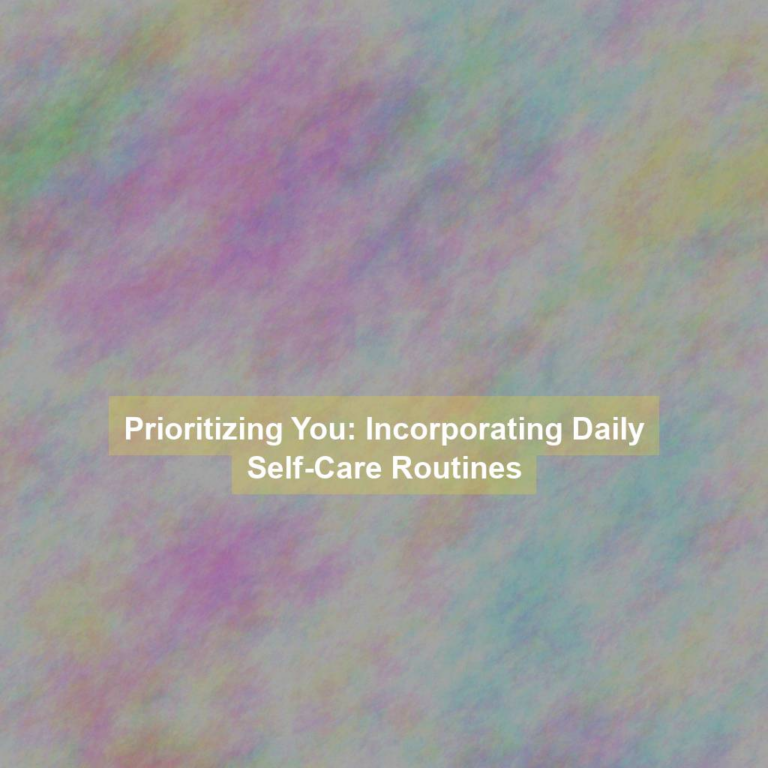You’ve probably heard the phrase ‘treat yourself with kindness,’ but how often do you truly apply this to your own life? Embracing yourself with self-compassion is not just a feel-good concept, but a crucial aspect of mental and emotional wellbeing.
It’s about acknowledging your own struggles and pain with kindness and understanding, and it can have a profound impact on your overall happiness and resilience.
So, how exactly can you start incorporating self-compassion exercises into your daily routine?
Understanding Self-Compassion
To truly understand self-compassion, you must first recognize the importance of being kind to yourself in times of struggle and difficulty. It’s about acknowledging that everyone makes mistakes and faces challenges, and it’s okay to be gentle with yourself in those moments. Self-compassion involves treating yourself with the same understanding and support that you’d offer to a friend in need. By doing so, you can foster a sense of inner strength and resilience that’s essential for navigating life’s ups and downs.
When you practice self-compassion, you’re actively choosing to be understanding and patient with yourself. This means embracing your imperfections and accepting yourself as you are, without harsh self-judgment. It also involves recognizing that suffering is a part of the human experience, and that it’s okay to seek comfort and solace during difficult times.
Practicing Mindful Self-Care
When practicing mindful self-care, demonstrating kindness and understanding toward yourself becomes an integral part of nurturing your overall wellbeing. It involves being present in the moment and deliberately paying attention to your thoughts and feelings without judgment. Start by setting aside a few minutes each day to engage in activities that help you connect with yourself. This could be through meditation, deep breathing exercises, or simply going for a peaceful walk. Engaging in these activities can help you become more aware of your inner experiences and foster a greater sense of self-compassion.
In addition, mindful self-care means being attuned to your physical needs. This includes getting adequate rest, eating nourishing foods, and engaging in regular physical activity. Listening to your body and responding to its needs with care and consideration is essential for maintaining overall health and wellbeing.
Furthermore, mindful self-care involves setting boundaries and practicing self-compassion in your daily interactions. This means being mindful of the relationships and situations that either energize or deplete you, and making conscious choices to prioritize your emotional and mental wellbeing. By integrating these practices into your daily routine, you can cultivate a greater sense of self-compassion and enhance your overall quality of life.
Cultivating Self-Acceptance
Cultivating self-acceptance involves embracing your imperfections and acknowledging your worth without seeking external validation. It means recognizing that you’re inherently valuable, regardless of your flaws or past mistakes.
Start by reframing your self-talk – instead of focusing on your shortcomings, remind yourself of your unique strengths and capabilities. Embrace the idea that it’s okay not to be perfect, and that your worth isn’t determined by meeting unrealistic standards.
Practice self-compassion by treating yourself with the same kindness and understanding that you’d offer to a friend in need. Be mindful of your inner critic and challenge negative thoughts with self-affirming statements.
Understand that everyone has their own set of imperfections, and that’s what makes us human. By accepting yourself as you are, you can cultivate a sense of inner peace and confidence.
Nurturing Inner Dialogue
Embrace the practice of nurturing your inner dialogue by recognizing that your self-acceptance journey is closely linked to how you speak to yourself on a daily basis. Pay attention to the way you talk to yourself. Are you kind and supportive, or do you often criticize and belittle yourself? Start by acknowledging your inner dialogue.
When you catch yourself being harsh or judgmental, pause and reframe your thoughts. Replace self-criticism with words of understanding and encouragement. Treat yourself with the same compassion and empathy that you’d offer to a friend in need. Be mindful of the language you use internally.
Choose words that uplift and empower you. Instead of focusing on your shortcomings, remind yourself of your strengths and capabilities. Challenge negative self-talk by questioning its validity and offering a more balanced perspective. Cultivate a nurturing inner dialogue that fosters self-compassion and resilience.
Engaging in Self-Kindness Exercises
Engage in self-kindness exercises daily to cultivate a mindset of compassion and care towards yourself. Take a few moments each day to acknowledge and appreciate your worth. Start by practicing positive self-talk. Replace self-criticism with words of encouragement and understanding. When you notice negative thoughts creeping in, consciously challenge them and replace them with affirming and supportive statements.
Another self-kindness exercise is to prioritize self-care. Dedicate time to activities that bring you joy and relaxation. This could be anything from taking a leisurely walk, reading a book, or indulging in a hobby you love. Remember that taking care of yourself isn’t selfish but necessary for your overall wellbeing.
Additionally, practicing gratitude towards yourself is essential. Reflect on your strengths, accomplishments, and the positive qualities that make you unique. Celebrate your achievements, no matter how small they may seem. By engaging in these self-kindness exercises, you can foster a greater sense of self-compassion and build a more positive and nurturing relationship with yourself.
Conclusion
So, as you continue on your journey of embracing yourself, remember to be kind and compassionate towards yourself.
Practice mindfulness, cultivate self-acceptance, nurture your inner dialogue, and engage in self-kindness exercises regularly.
These self-compassion exercises are essential for your overall wellbeing and happiness.
Embracing yourself is a continuous process, but with dedication and patience, you can develop a healthier and more loving relationship with yourself.
Keep up the good work!







